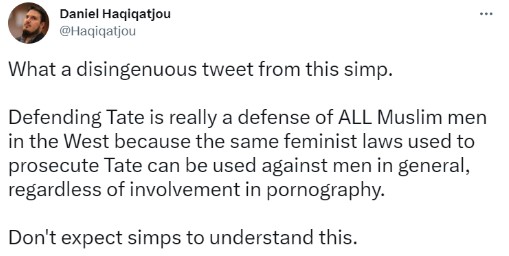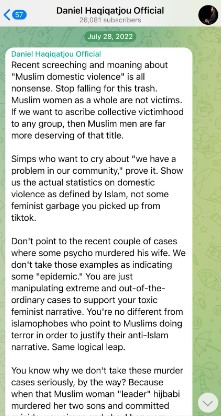Haram Haqiqatjou #7: Mocking the Religion of Others

Background
In a Twitter back-and-forth, Daniel Haqiqatjou mocks an Ahmadi by suggesting this individual should visit an outhouse, the supposed place of death of Mirza Ghulam Ahmed.
Haram Action
Mocking those of another religion, going against a clear command from Allah SWT to stay away from such actions and language. While the Ahmadi religion is kufr, mocking religion is not acceptable. Allah SWT ordered the Prophet (saw) to not mock even the mushrikeen’s religion.
Evidence of Haram
Daniel mocks the religion of another and pokes sarcastic comments at the rituals of another religion. When Bani Israil accused Musa (as) of being sarcastic, his reply was, “I seek Allah’s refuge from being a jahil, or an ignorant fool.”
“And insult not those whom they (disbelievers) worship besides Allah, lest they insult Allah wrongfully without knowledge. Thus We have made fair-seeming to each people its own doings; then to their Lord is their return and He shall then inform them of all that they used to do” [al-An‘aam 6:108]”.
A point of irony: Of the characteristics of the people of Lot was that they would gather in clubs for the purpose of putting people down and mocking them. Daniel Haqiqatjou’s Twitter and Telegram accounts serve as a revival of this wretched pastime.
Date: February 7, 2023





